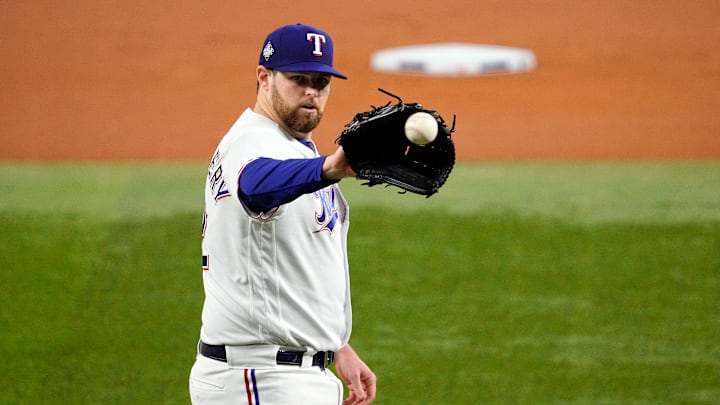Boston Red Sox fans are finally free of the endless rumors and predictions following Jordan Montgomery around all offseason long.
None of them went the way many Boston fans would have hoped, and it's likely due to the front office's decision to field the cheapest possible baseball team. That choice is probably what shot the Red Sox in the foot while chasing Montgomery or Blake Snell.
Boston's most desperate need has been consistent starting pitching for quite some time, and the organization had a shot at two of the best pitchers from last season — one World Series champion or one Cy Young award winner. Ownership has avoided big contracts for pitchers like the plague in the wake of the Chris Sale and David Price deals, but Boston had more than enough money to make a move this season without even approaching the luxury tax.
The first luxury tax threshold for 2024 sits at $237 million and Boston's projected total payroll sits well below that $206 million, per ESPN's Jeff Passan's payroll analysis (subscription required). That leaves the front office with $29 million to work with before they would be charged any competitive balance tax.
Both Montgomery and Snell ended up signing for far less money and time than their initial asking prices, but the Red Sox could have signed them at any price. Montgomery was reportedly asking for a seven-year deal at $172 million and Snell a nine-year contract for $270 million.
Red Sox avoided top free agents despite financial wiggle room
All 30 teams in MLB balked at the pitchers' initial asking prices — Montgomery had never been a No. 1 starter before and Snell led MLB in walks during his second Cy Young winning campaign. Boston fans can feel comforted by no one else taking the leap to sign them early.
But money is no object to John Henry and Fenway Sports Group, and one of the wealthiest owners in MLB is running his baseball team into the ground by not spending appropriately to get better.
One of Henry and Red Sox management's clearest attempts to save money actually ended up costing them. Boston signed Lucas Giolio as the cheap free-agent pitcher option this winter and now he'll be paid $18 million to rehab from UCL surgery all season and into next year. The Red Sox are also paying Liam Hendriks $2 million to recover from his Tommy John surgery. Skipping out on the two of them could've saved the Sox enough to pay for the vast majority of Montgomery or Snell's year-one salary.
#MLBTonight reacts to the reported news of Jordan Montgomery signing with the Diamondbacks. pic.twitter.com/L8ovnoLg5h
— MLB Network (@MLBNetwork) March 27, 2024
But even so, giving Monty $25 million for one season (though that was unrealistic) or a long-term deal would've perfectly fit the Sox's plans. Any AAV under $29 million would've kept them under the tax for 2024, and a long-term deal could've helped them build out their rotation beyond just this year. They had every opportunity to make either scenario happen, and could've maybe swayed Montgomery with a long-term contract.
The biggest issue for the Red Sox in terms of Montgomery and Snell was likely the timelines of the deals they were hoping for. After Sale's and Price's contracts didn't work in Boston's favor, signing any pitcher long-term has been too big a risk for the Red Sox to take on.
But taking risks and spending money are part of baseball and the Red Sox will never succeed without doing those things. One of their key arguments against signing one of the top-tier free agents was that their plans are future-oriented, but signing Snell or Montgomery for five-plus years would be insurance for the future.
The Red Sox's 2024 offseason didn't make sense to many reporters and fans, and their reluctance to spend any significant amount of money is one of the reasons why. With Montgomery or Snell or both, Boston could've fielded the competitive team it promised it would this year and remained under the luxury tax to save Henry and FSG precious money.
Instead, the Red Sox will move on with next to nothing in terms of starting pitching depth, $29 million sitting in the bank that could've been used to better the team and a more uncertain future than last year.
